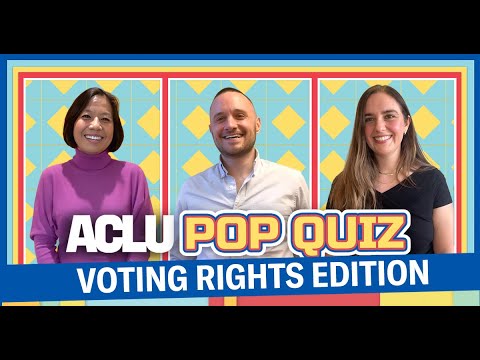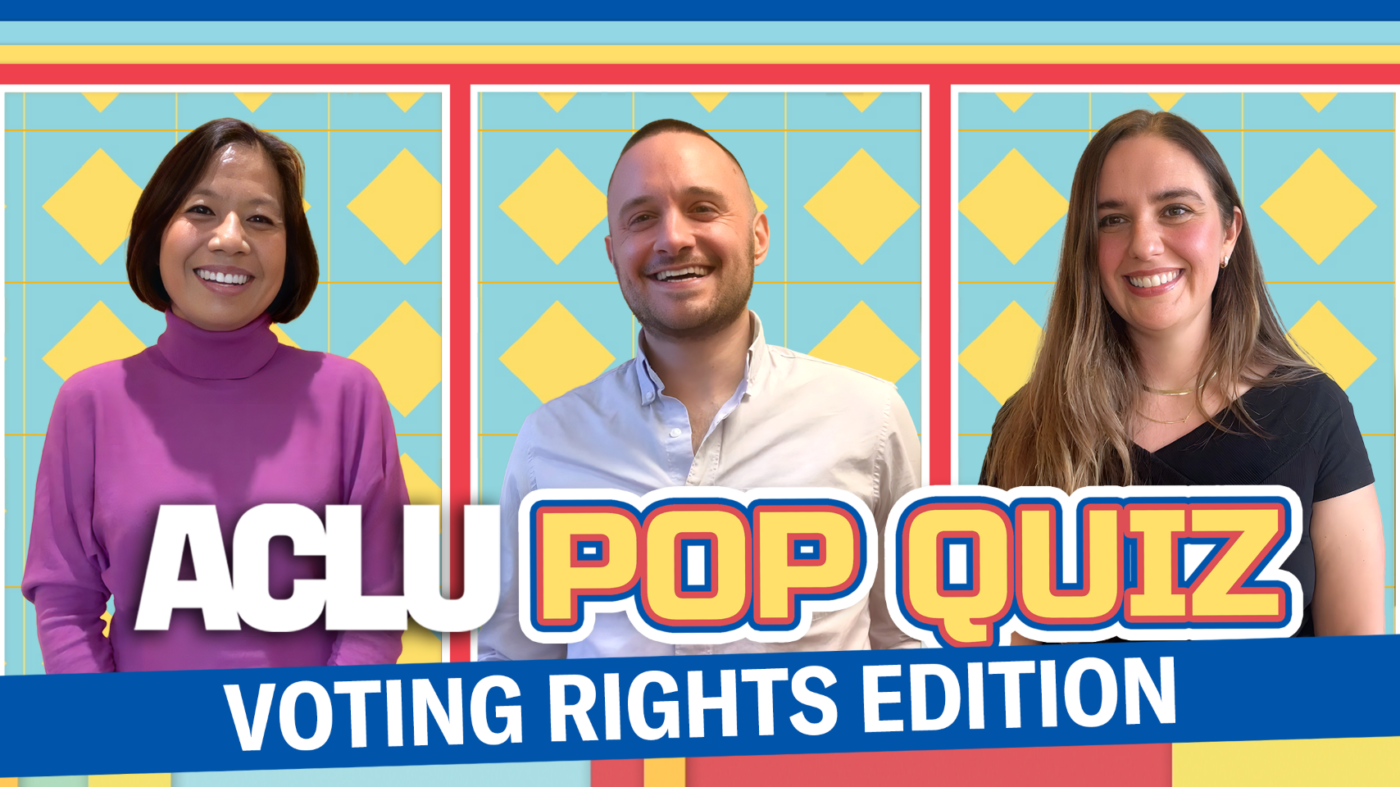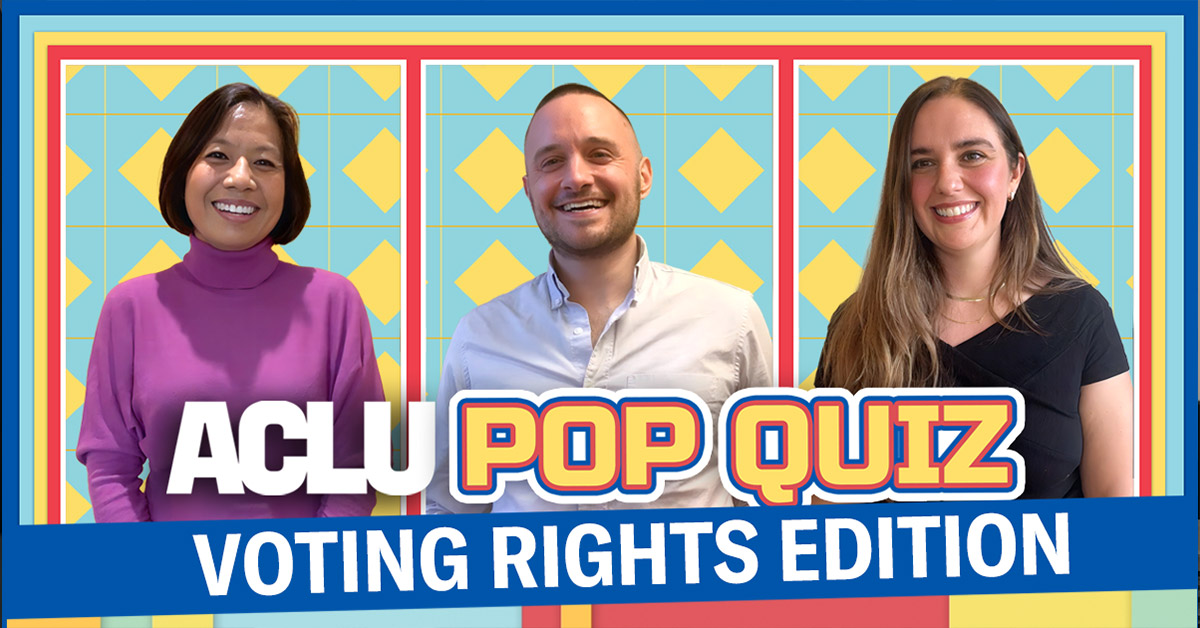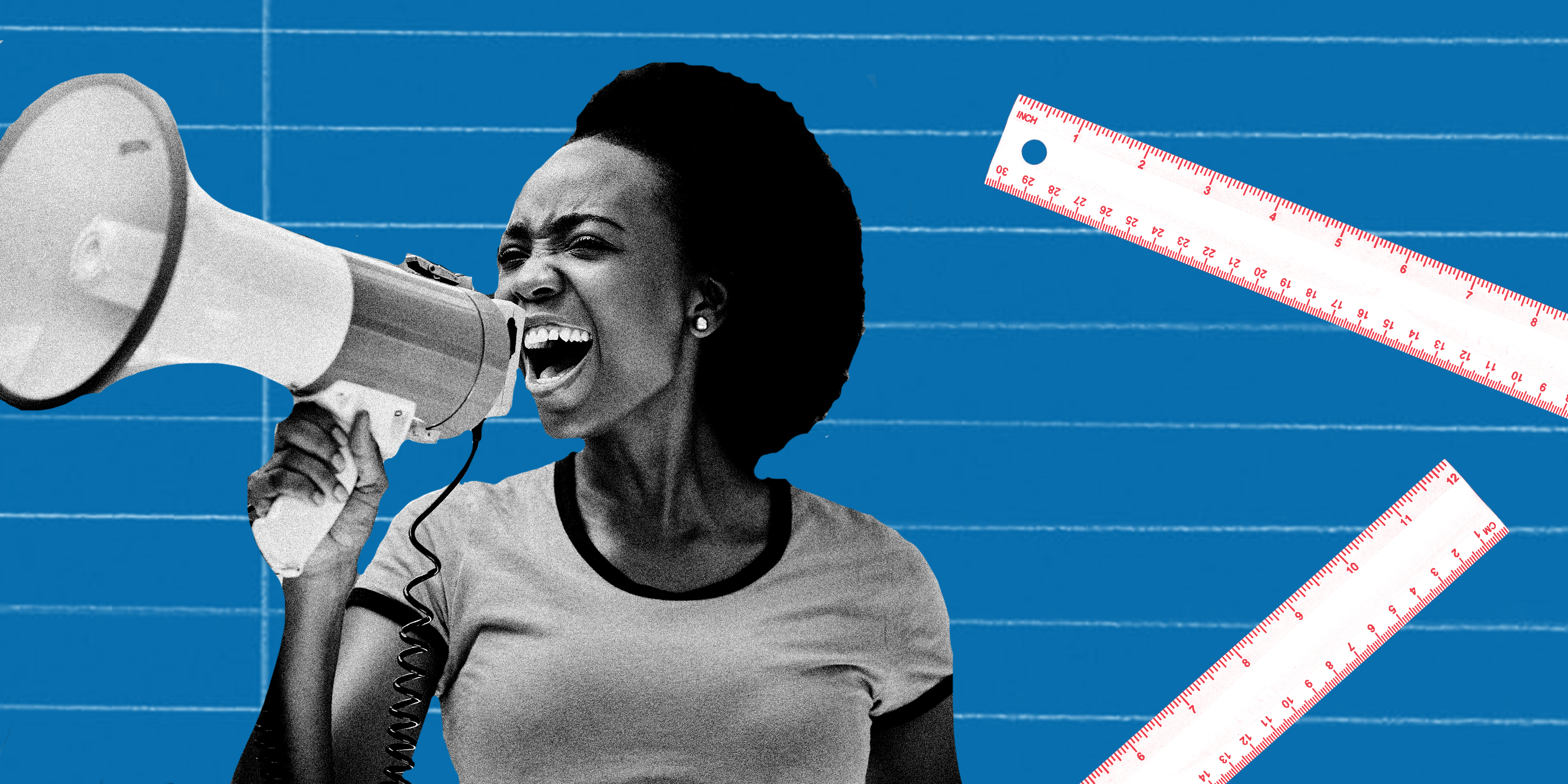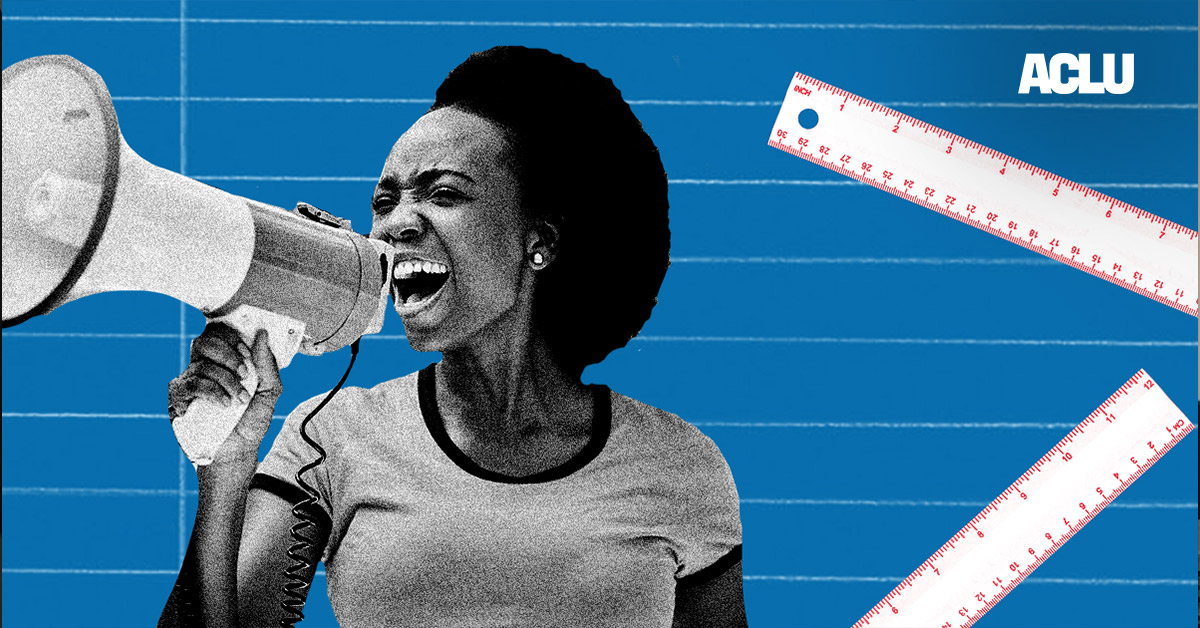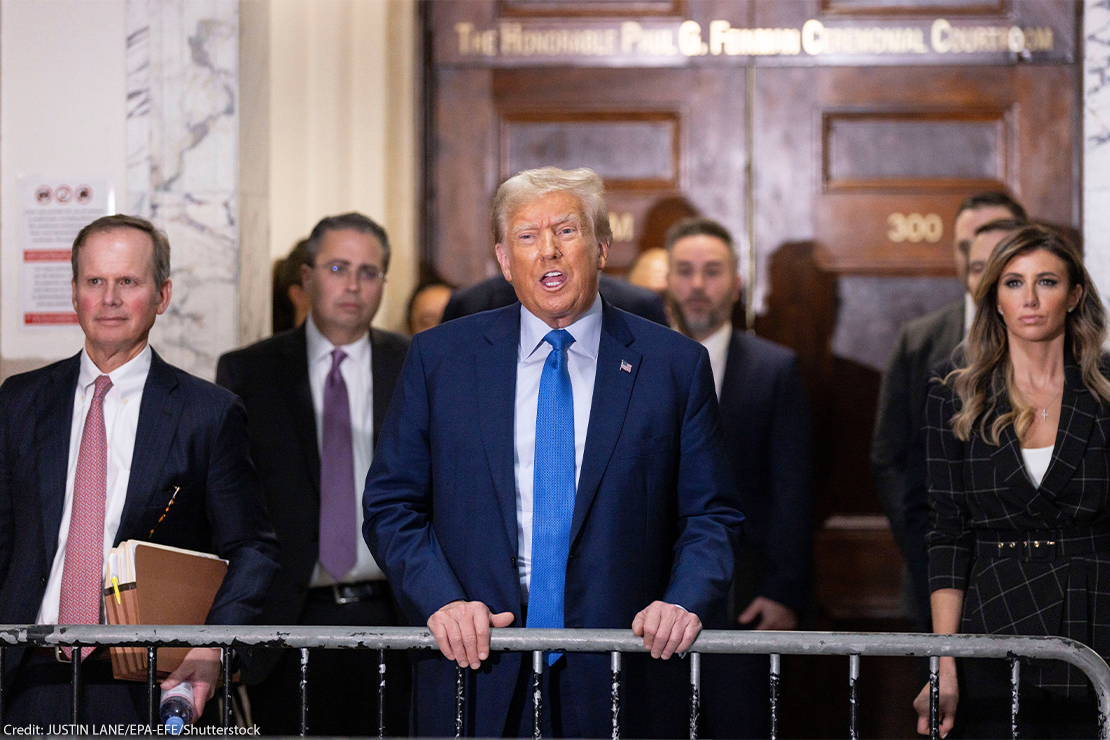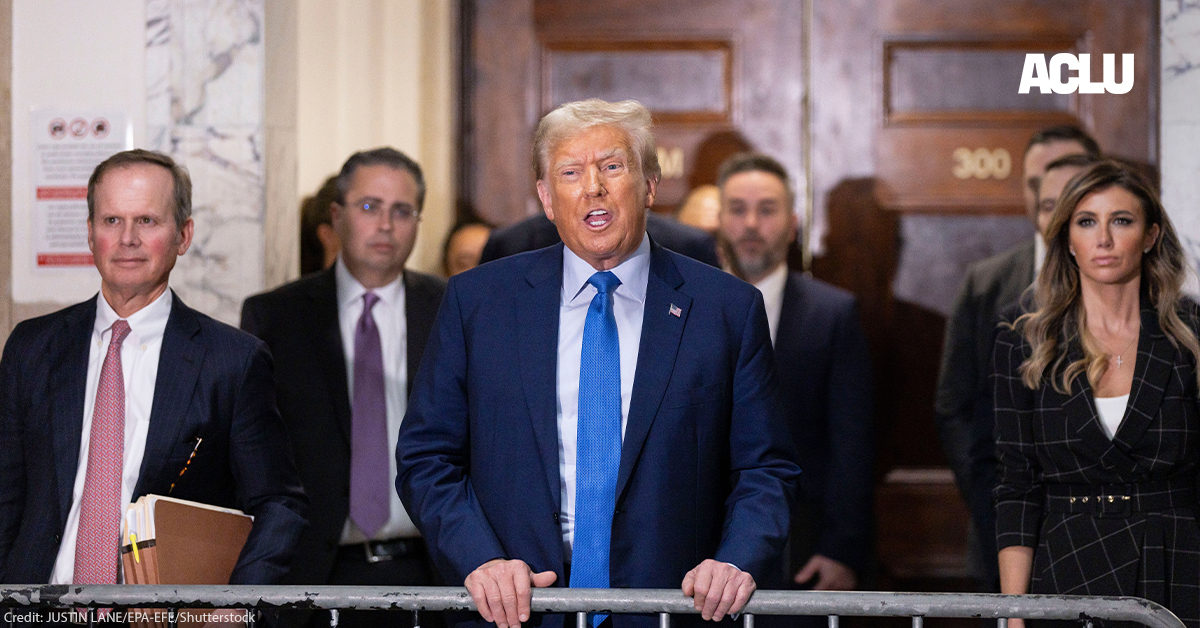David Cole, ACLU Legal Director
Ben Wizner, Director, ACLU Speech, Privacy, and Technology Project
This editorial was originally published by the Los Angeles Times.
Does the First Amendment shield Donald Trump from prosecution for conspiracy to obstruct the 2020 election results?
Trump’s lawyer has proclaimed the indictment “an attack on free speech and political advocacy.” He says Trump thought there was voter fraud, and “as a president, he’s entitled to speak on those issues.” And the indictment by special counsel Jack Smith does repeatedly cite Trump’s false public statements about voter fraud. Is Trump right to claim free speech as a defense?
As ACLU lawyers, we take this question seriously. No organization has done more to defend speech rights than the ACLU — sometimes to the dismay of our allies. We’ve defended Trump’s speech rights when he was sued for allegedly prompting a mob to beat up a protester. We criticized Twitter’s and Facebook’s decisions to de-platform Trump, and applauded when Trump was allowed back. We defended white supremacist Jason Kessler’s right to protest the removal of a Confederate memorial in Charlottesville, Va., supported the National Rifle Assn. in its First Amendment challenge to former New York Gov. Andrew Cuomo’s urging financial institutions to cut ties with the organization because of its “pro-gun” speech. And in the 1970s, the ACLU defended the right of a neo-Nazi group to march in Skokie, Ill., home to many Holocaust survivors at the time.
When it comes to free speech claims, we call them as we see them. But here, we don’t think the First Amendment bars Trump’s indictment. We pass no judgment on Trump’s ultimate guilt or innocence. He is entitled to the presumption of innocence, even as we believe that no person is above the law. But Trump’s First Amendment defense doesn’t cut it here.
Trump has been charged with conspiring to overturn the election results and obstruct the peaceful transfer of power. At times, he used words, including lies, to accomplish this. But that doesn’t mean he’s being prosecuted for constitutionally protected speech, any more than a bank robber who says, “hand over the money,” to a teller.
If Trump had spread lies — on Twitter, in public speeches or anywhere else — but otherwise took no action to obstruct the election results, could he have been charged for merely claiming that he won when he knew he lost?
Obviously not. The First Amendment protects even false speech in many circumstances. The indictment itself concedes that Trump “had a right, like every American, to speak publicly about the election and even to claim, falsely, that there had been outcome-determinative fraud during the election and that he had won.”
The problem was not Trump’s speech, but his alleged actions: his attempts to get state election officials to invalidate valid results and declare him the winner; to compel the Justice Department to claim that it had uncovered substantial evidence of fraud when it hadn’t; to support efforts to create fake sets of electors to vote him into office in states that he lost; and to urge Vice President Mike Pence to refuse to certify the lawful election results.
Of course, many of these actions involved communication. But the fact that a crime includes speech does not turn the First Amendment into a defense. A conspiracy is an agreement to commit a crime, and almost always takes the form of words. Teaching a would-be suicide bomber how to make a bomb with the intent that he detonate it also involves communication, but that kind of communication can be prosecuted.
We do, however, have concerns about one aspect of the indictment. At several points, it charges that Trump repeated his lies in his speech on Jan. 6, 2021, to a crowd gathered at the White House. To the extent the Justice Department is seeking to hold Trump criminally responsible for the subsequent actions of the crowd that day, the prosecution would have to satisfy the legal standard that the ACLU helped established in Brandenburg vs. Ohio, which says that speech advocating criminal conduct can be punished only if it is intended and likely to produce imminent lawless action.
Reasonable minds can differ on whether Trump’s remarks that day crossed that line. If the prosecutors seek to hold him accountable for the mob’s actions, they would have to satisfy that demanding standard. In the context of political speech, courts should be very hesitant to hold speakers liable for the actions of others.
But these concerns don’t bear on the great majority of the actions for which Trump faces trial. As Justice Hugo Black, a First Amendment absolutist, wrote more than 70 years ago: “It has never been deemed an abridgment of freedom of speech or press to make a course of conduct illegal merely because the conduct was in part initiated, evidenced, or carried out by means of language.” The First Amendment provides no license to conspire to overturn an election.
https://www.aclu.org/news/free-speech/weve-defended-trumps-first-amendment-rights-but-his-latest-jan-6-indictment-claims-are-nonsense
The First Amendment provides no license to conspire to overturn an election.

